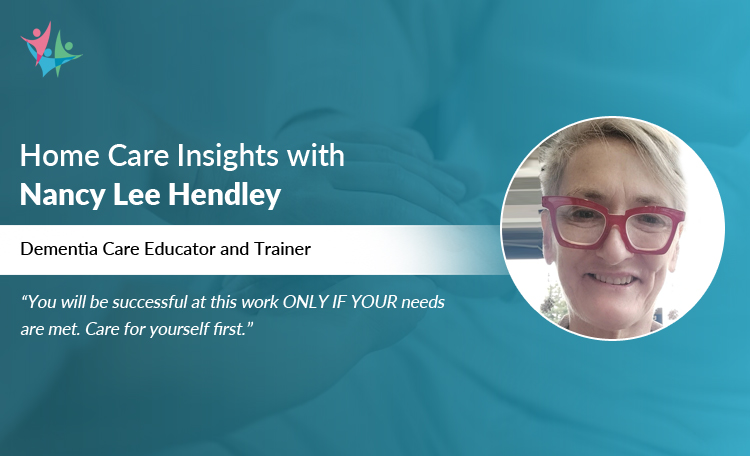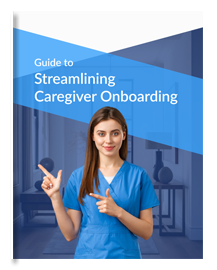In Conversation with Nancy Lee Hendley to Bring Her Insights on Supporting Dementia Seniors
In caregiving, where love meets responsibility, empowering caregivers with dementia care education is a beacon of support and understanding. The intricate and often challenging journey of caring for individuals with dementia demands specialized knowledge, patience, and profound empathy. Recognizing this vital need, our initiative strives to provide caregivers with comprehensive education. We understand the complexities of dementia and the emotional toll it takes on caregivers and their loved ones.
Through tailored education programs, we aim to equip caregivers with practical skills, emotional resilience, and a deeper understanding of dementia’s nuances. Together, we foster an environment where caregivers can navigate this intricate terrain with confidence, compassion, and unwavering support.
To shed some light on the same, we interviewed a home care industry expert to bring her perspective on educating caregivers for adequate dementia care.

Who Did We Interview?
Nancy Lee Hendley brings over twenty years of dedicated experience, shaping lives within dementia care and support. Based in New York City, she has been a cornerstone of a premier Alzheimer’s organization, touching the lives of individuals with dementia, their caregivers, and their families. Nancy is not just a professional; she’s a dynamic, engaging force, blending her expertise with creativity to tailor educational programs to diverse audiences.
Her innovative presentations reflect her deep curiosity about learning, delivering practical tools and crucial insights. Nancy’s unique approach also incorporates her fine art background, enriching the lives of those with dementia by fostering expression and creativity.
Let’s explore our expert’s insights on providing education and ensuring the well-being of elderly individuals with dementia.
Question 1: What can caregivers do to support a person with dementia?
CARE for YOURSELF Caring for people with dementia has been compared to running a MARATHON! You must pay attention to your physical, mental, emotional, and spiritual needs. You will be successful at this work ONLY IF YOUR needs are met. Care for yourself first.
GET HELP, and HELPERS ASK FOR HELP. Dementia care requires a TEAM. Draw upon your communities- family- church- and local Alzheimer’s organizations. Make a list of things you need to do. Make a list of people who can assist. Match the needs list with the people list. People WANT to help- they need to be allowed to contribute.
Ask for HELP
Preserve your ENERGY: Learn to say NO. You are already doing enough. No more volunteering. It’s okay to stop before you drop. It’s okay to let things be good enough.
GET A GOOD COACH/SUPPORT GROUP Find a coach/therapist/champion who can listen to you. Preferably someone who has done this before. Call the Alzheimer’s Foundation of American 866-232-8484, CaringKind 646-744-2900, the Alzheimer’s Association 1 800 272 3900 to join a support group- they can be lifelines for many of us.
LEARN AS MUCH AS YOU CAN. Find resources you like. Search for online or in-person education groups. Call the helplines (see above) to talk or to ask questions.
Get your finances and end-of-life issues in order. There are free legal advice seminars to assist you with what you need to know about specific issues related to dementia. CaringKind 646-744-2900. Read Travelers to Unimaginable Lands by Dasha Kiper.
Question 2: Do persons with dementia need to make certain lifestyle changes to minimize the impact?
I suggest that people with the diagnosis contact local Alzheimer’s organizations to ask about programs geared toward newly diagnosed individuals—the Dementia Action Alliance info@daanow.org. The NYC 92nd Street Y has programs for persons in the early stages of the illness.
Stay engaged/stay involved.
Question 3: How should family members and care partners communicate with persons diagnosed with dementia?
There is much to be found online about good communication. One of my favorite references to communication is Contented Dementia by Oliver James.
People with dementia are confused. They may be having difficulty understanding us and expressing themselves. We need to create a space that allows them to feel safe- not pressured or stressed. We need to be with the person rather than talk at them.
Yes- agree, be agreeable, kind, slow and patient, clear and concrete, sit with the person, share something they like, be courageous, bring calm and reassurance, ask for their help, break down tasks, and take it easy.
No- quizzing, pressure, bad tone, laughing at, making fun of, moving too fast, asking too much of, ordering around, treating like children
See Nancy Lee Hendley on YouTube, Marshmallow- How to Build a Conversation with a Person with Dementia.
Question 4: Do caregivers and family members need to take certain steps to make the elderly’s house dementia friendly?
YES go to thiscaringhome.org. There is an extensive and comprehensive site devoted to this issue. Also contact Alzheimer’s Foundation of America alzfdn.org/theapartment/ a virtual and actual apartment designed for persons with a diagnosis of dementia.
Question 5: What advice do you give caregivers dealing with dementia in older adults?
You got this. You have everything you need to get through this. You will need help. HELP IS AVAILABLE.
In Conclusion
In dementia care education, caregivers undergo a transformative journey where knowledge intertwines with empathy. This profound experience goes beyond mere skill acquisition; it encompasses a deep connection to the human spirit.
By providing caregivers with specialized education, they are empowered to navigate the intricate challenges of dementia with confidence and patience. It’s about fostering an environment where caregivers, armed with practical tools and profound compassion, can significantly impact the lives they touch. This effort represents a universal commitment to enhancing the quality of life for caregivers and those they support, enriching communities worldwide.
